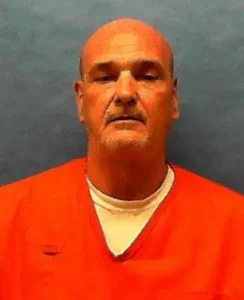John Freeman was sentenced to death by the State of Florida for the murder of Leonard Collier
According to court documents John Freeman would break into a home and get into a fight with the homeowner Leonard Collier. Collier would be struck repeatedly in the head with a gun and die from his injuries
John Freeman would be arrested, convicted and sentenced to death
John Freeman Photos

John Freeman FAQ
Where Is John Freeman Now
John Freeman is incarcerated at Union Correctional Institution
John Freeman Case
ohn D. Freeman (Freeman) was convicted of first-degree felony murder for the 1986 killing of Leonard Collier (Collier). Freeman was sentenced to death, and both the conviction and sentence were affirmed on appeal. See Freeman v. State, 563 So.2d 73 (Fla.1990). Collier caught Freeman in the act of burglarizing his home. Freeman claimed that Collier pointed a gun at him and threatened to shoot him to prevent his escape. The two struggled over the gun and fell outside into the front yard. When Freeman obtained possession of the gun, he used the gun to repeatedly strike Collier in the head ten to twelve times. Collier died from the head wounds.
During the guilt phase of the trial, defense counsel made several objections to the prosecutor’s closing argument. First, defense counsel objected arguing the prosecutor was trying to get the jury to use this case to send a message to the community when he argued the Legislature had enacted the felony murder law to prevent violent felonies. The judge overruled the objection. Second, defense counsel objected after the prosecutor made several comments that defense counsel had the “gall” and the “nerve” to argue self-defense. This objection was also overruled. Third, defense counsel objected when the prosecutor argued defense counsel’s request for a manslaughter conviction was an insult to the jurors’ intelligence. The judge sustained this objection and told the jurors he would instruct them on the law at the conclusion of closing arguments, but denied the motion for a mistrial.
The judge agreed to give the jury a special verdict form that included a place under first-degree murder where the jury could check premeditated murder or felony murder. Second and third-degree murder did not have places to check whether they were felony murder. The jury was confused by the instructions and asked the judge to clarify them. The judge referred the jury to the page of the instructions that would answer its question, but the jury was still confused. They sent out the same question again. The judge called the jury in and explained that there was no legal reason for distinguishing between first-degree premeditated murder and first-degree felony murder. He further explained the difference between first-degree felony murder and third-degree felony murder would depend on whether the underlying felony was burglary or assault. After the jury had been excused, defense counsel objected because the judge failed to reread all the other possible offenses when he reinstructed the jury. In response, the judge recalled the jurors and reinstructed that he was not trying to influence them in any way and that they should reread all of the instructions, including the other possible offenses. The judge then excused the jury and asked defense counsel if that was satisfactory. Defense counsel responded, “Yes sir. Thank you.” The jury convicted Freeman of first-degree felony murder.
https://caselaw.findlaw.com/court/fl-supreme-court/1365863.html







